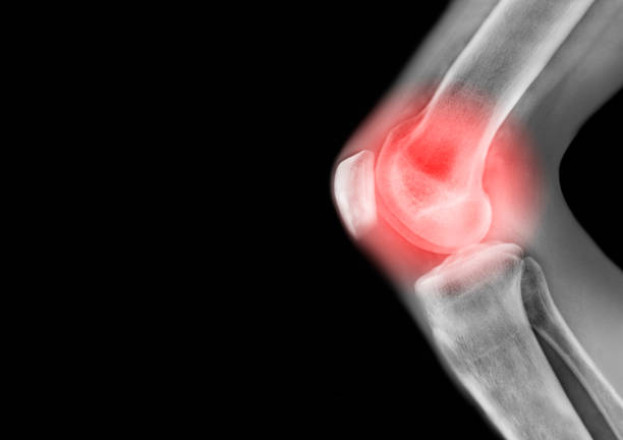Knee pain can be a real nuisance. It sneaks in quietly, gradually turning everyday tasks into challenges. You may wake up with discomfort, struggle with stairs, or feel the pain linger when playing with your kids. By evening, it can feel like a heavy burden, robbing you of much-needed rest.
If you’ve been struggling with knee pain, you're not alone—millions of people suffer from it due to arthritis, injuries, or wear and tear. The good news? There’s hope. Relief is possible, and it doesn’t always require expensive treatments.
Whether you're looking for science-backed solutions, affordable remedies, or practical tips, this guide on what is the best painkiller for knee pain, will help you regain mobility and find peace of mind.
Understanding Knee Pain:
Before moving into treatments, it’s important to understand why knee pain occurs. Knee pain can have many different causes, and identifying the source can help you find the best solution. Common causes include:
- Osteoarthritis: This is the most common cause of knee pain, particularly in older adults. Over time, the cartilage that cushions the joints breaks down due to age, wear, or injury, leading to pain and stiffness
.
- Injuries: Torn ligaments, such as an ACL tear, or damage to the meniscus (the cartilage that cushions the knee) are common injuries that result in knee pain. These injuries can occur during sports or accidents.
- Inflammation: Conditions like bursitis (inflammation of the bursa, the fluid-filled sacs that cushion the knee joint), tendonitis (inflammation of the tendons), or rheumatoid arthritis (an autoimmune condition that affects joints) can lead to swelling, discomfort, and pain
.
- Lifestyle Factors: Excess weight places extra strain on your knees, and poor posture or repetitive motions (like squatting or climbing stairs) can contribute to pain over time.
Over-the-Counter (OTC) Painkillers:
If you’re looking for immediate relief from knee pain, over-the-counter (OTC) painkillers can provide temporary relief. Let’s take a look at some of the most common options:
1. Acetaminophen (Tylenol)
- Pros: It’s gentle on your stomach and works well for mild pain.
- Cons: It doesn’t reduce inflammation, so it might not be the best option for inflammatory pain.
- Dosage: 500–1,000 mg every 6–8 hours, with a maximum of 4,000 mg per day.
2. Ibuprofen (Advil, Motrin)
- Pros: Not only relieves pain but also reduces inflammation, making it a great option for inflammatory knee pain.
- Cons: Avoid if you have ulcers, kidney problems, or high blood pressure.
- Dosage: 200–400 mg every 4–6 hours, with a maximum of 1,200 mg per day.
3. Naproxen (Aleve)
- Pros: Provides longer-lasting relief (up to 12 hours) compared to ibuprofen.
- Cons: Higher risk of stomach irritation, so be cautious if you have sensitive digestion.
- Dosage: 220 mg every 8–12 hours, with a maximum of 660 mg per day.
Topical Treatments: Direct Relief Where You Need It:
Sometimes you just want to target the pain without swallowing pills. Fortunately, there are several topical treatments that can provide localized relief.
1. Voltaren Gel (Diclofenac)
This NSAID gel works to reduce inflammation and is applied directly to the knee. A 2023 study published in the Journal of Arthritis Research found that it was as effective as oral ibuprofen for knee osteoarthritis.
- How to Use: Apply 4 times a day, massaging the gel into the knee.
2. Capsaicin Cream
Derived from hot chili peppers, capsaicin blocks pain signals by depleting “Substance P,” a chemical that transmits pain to the brain.
- Tip: Be sure to wash your hands thoroughly after applying, as it can cause irritation if it accidentally comes into contact with your eyes.
3. CBD Creams
Cannabidiol (CBD) is gaining popularity for its potential anti-inflammatory properties. Some studies show that CBD creams can help reduce pain and inflammation in the knee joints.
- How to Choose: Look for products with at least 500 mg of CBD per ounce for the best effect.
Natural and Home Remedies: Simple Ways to Find Relief
In addition to medications and topical treatments, several natural remedies can help soothe knee pain and reduce inflammation.
1. Turmeric + Black Pepper
Turmeric contains a compound called curcumin, which has powerful anti-inflammatory effects. Pairing it with black pepper enhances curcumin's absorption in the body, making it more effective.
- Dosage: Take 500 mg curcumin capsules twice daily, or incorporate turmeric into your meals.
2. Ice and Heat Therapy
- Ice Packs: Ice helps reduce swelling. Apply for 20 minutes on, then 20 minutes off.
- Warm Compress: Heat can ease stiffness and improve circulation. Try applying a warm compress before you engage in morning activities.
3. Epsom Salt Soaks
Magnesium sulfate in Epsom salts helps relax muscles and reduce pain. Try soaking your knees in warm water with 1 cup of Epsom salts for 15 minutes.
Lifestyle Changes for Long-Term Relief
While painkillers and topical treatments can provide temporary relief, making some lifestyle changes can help reduce knee pain in the long run and prevent it from coming back.
1. Weight Management
Maintaining a healthy weight is one of the most effective ways to protect your knees. For every pound you lose, you reduce about 4 pounds of pressure on your knees. This can significantly reduce the wear and tear on your joints.
2. Low-Impact Exercise
Exercise is important to strengthen the muscles around your knee, but high-impact activities (like running) can make pain worse. Low-impact activities like swimming, cycling, or yoga are gentle on the joints while helping to build strength and flexibility.
3. Proper Footwear
Wearing shoes with proper arch support can make a big difference in how your knees feel. Proper footwear helps align your body and reduces strain on your knees, especially during activities like walking and standing for long periods.
When to See a Doctor
If you’ve tried home remedies and over-the-counter pain relief without success, it might be time to see a doctor. Seek medical advice if:
- Pain persists for more than two weeks despite your best efforts to manage it.
- You notice redness, warmth, or sudden swelling around the knee.
- Your knee locks or buckles unexpectedly, making it difficult to move.
A Final Note of Hope
Knee pain can feel overwhelming at times, but it doesn’t have to control your life. With the right treatments and lifestyle changes, you can manage your knee pain and regain your mobility. Whether you start by trying a topical gel or swapping out soda for a cup of turmeric tea, every small step counts toward your recovery. Remember, you don’t have to do it alone—there are plenty of solutions available to help you find relief.
Before starting any new supplements or medications, always consult with your doctor, especially if you're pregnant, breastfeeding, or managing chronic health conditions. With the right care and attention, you can keep moving forward without knee pain holding you back.








![What is The Expat Loans in Saudi Arabia:? [A Comprehensive Guide 2025]](https://humanonline.org//uploads/articles/image_1745306071.webp)